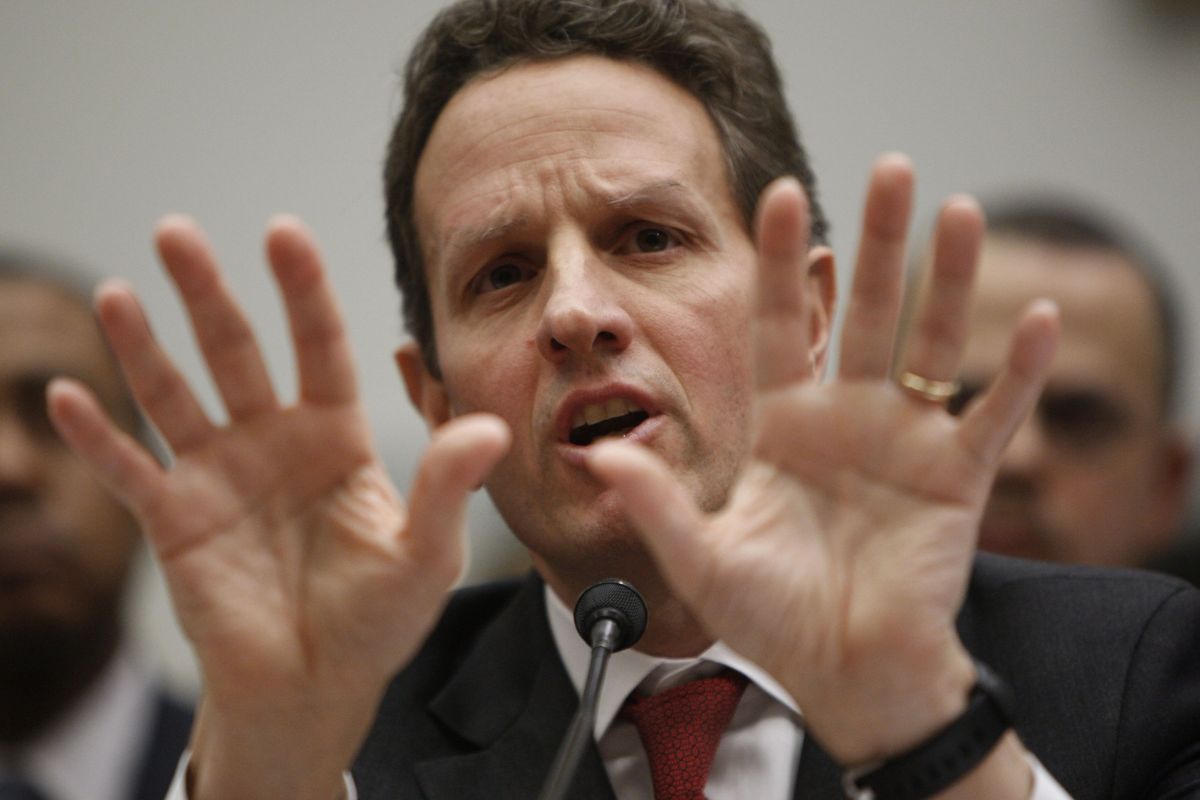Fed had ‘terrible choices,’ Treasury head testifies
Geithner, Paulson and Fed defend AIG payments

WASHINGTON – Treasury Secretary Timothy Geithner told a hostile congressional committee Wednesday that the only way to rescue the insurance giant American International Group in 2008 was to pay U.S. and foreign banks the full face value of $62 billion in bets on risky securities.
Without massive government intervention, AIG would have collapsed, sending the world financial system into ruin, Geithner said.
Democratic and Republican committee members, whose staffers have been sifting through 250,000 subpoenaed documents from the Federal Reserve Bank of New York, which Geithner headed at the time, challenged his contention. They charged that Geithner catered to the same Wall Street firms that caused the financial crisis, costing millions of Americans their jobs.
Rep. John Mica, a Florida Republican, told Geithner that his handling of the AIG bailout warrants his removal.
Two other members of the government trio that spearheaded the massive taxpayer bailouts of the financial industry rallied to defend Geithner, who headed the New York Fed when the decision was made to stop trying to negotiate discounted settlements with AIG.
Henry Paulson, who was Treasury secretary at the time, told the House of Representatives Oversight and Governmental Affairs Committee that he had no role in the negotiations that settled the banks’ insurance-like contracts, called credit default swaps, with AIG for 100 cents on the dollar but that the action was critical to avoiding “an absolute disaster.”
Fed Chairman Ben Bernanke sent the committee a letter defending the action.
Geithner said that the New York Fed faced “terrible choices” in early November 2008 with only days to try to negotiate a discount on the contracts, many of which insured securities backed by dicey subprime loans. When the banks didn’t budge, he said, AIG faced threats of a downgrade by credit-rating agencies that would have sent it careening into bankruptcy with worldwide ramifications.
Goldman Sachs received a total of $14 billion on its exotic bets with AIG, and Merrill Lynch got $6.2 billion. France’s Societe Generale got $16.5 billion and Germany’s Deutsche Bank received $8.5 billion.
If Fed officials forced a tougher settlement, he said, “Market participants would have lost confidence in AIG, leading to the company’s collapse.”
Neil Barofsky, the special inspector general tracking the use of taxpayer bailout funds who recently issued an audit challenging the Fed’s decision-making, told the committee that the Fed could have negotiated “in a more forceful way” to resolve the swap contracts.
Barofsky, who disclosed this week that he’s opened investigations into the Fed’s candor about the matter, recalled that Paulson, Bernanke and Geithner leaned weeks earlier on failing investment bank Bear Stearns to accept $2 a share to turn over its assets to banking goliath J.P. Morgan Chase.
“They could have just tried a little harder” with AIG, Barofsky said, and that might have saved “billions, even tens of billions of dollars.”